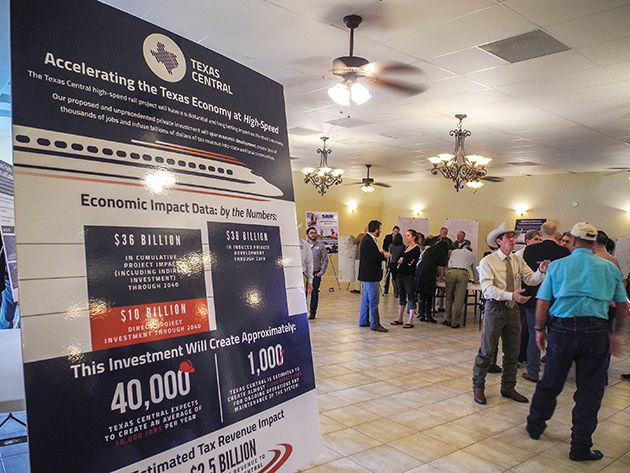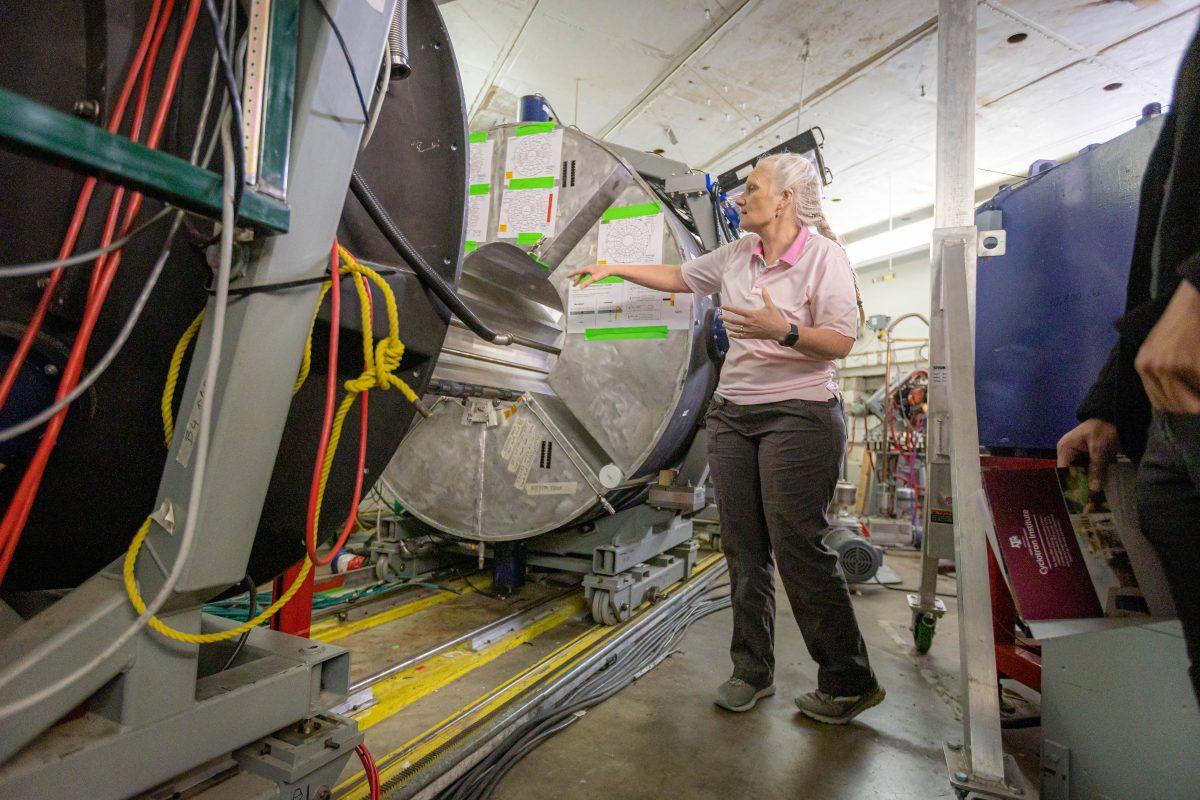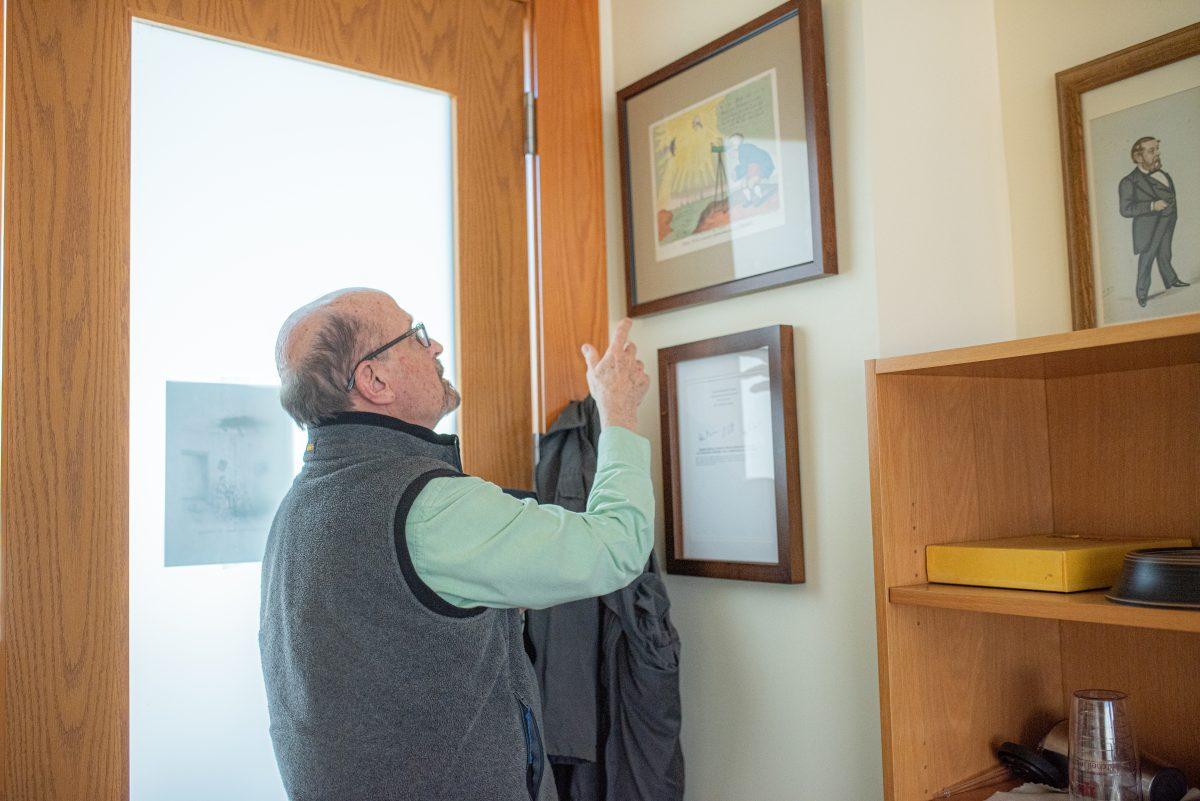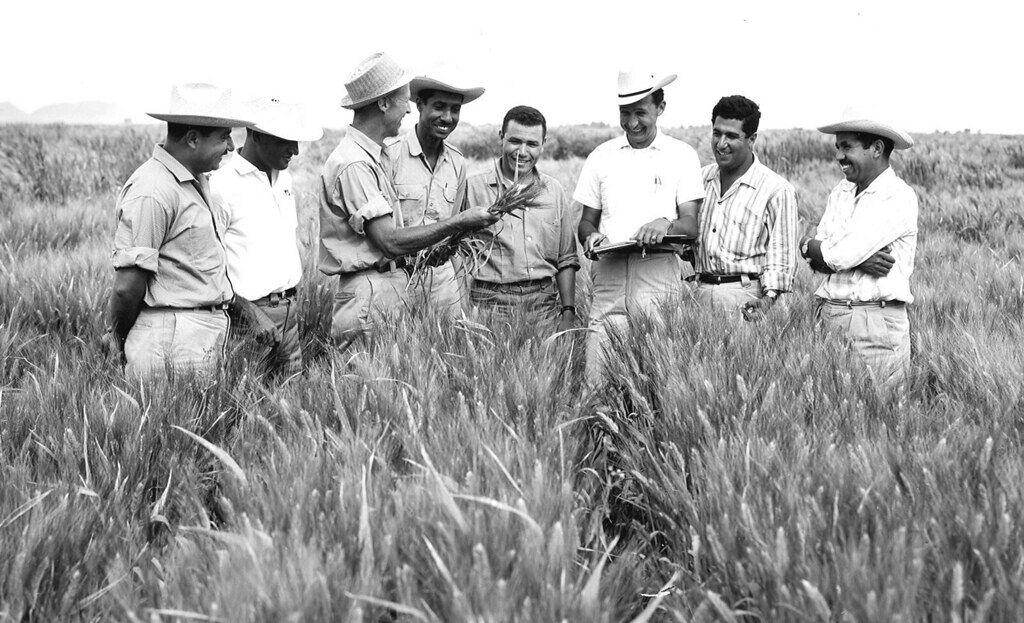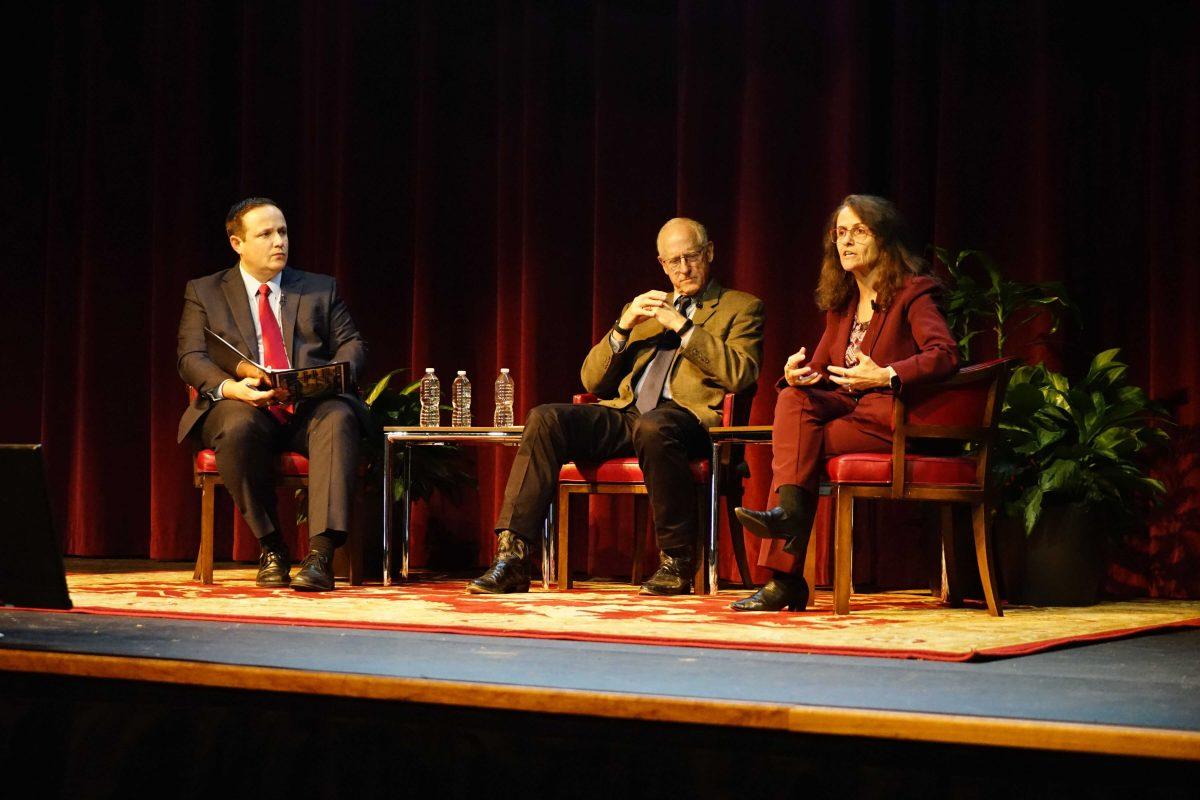The private company responsible for the construction of the controversial high-speed rail between Houston and Dallas met with opposition in Grimes County on Saturday.
A proposed high-speed rail line between Houston and Dallas continues to be debated across Texas, as the private business that intends to start construction before 2017, Texas Central, awaits the results of government environmental reviews.
The rail will link two of the state’s largest cities with a proposed way station just 20 miles from Texas A&M’s campus. The plan has met staunch opposition in the nine counties between Dallas and Houston and the rail’s impact was debated Saturday at an informational in Navasota.
Chief Executive Officer of Texas Central Tim Keith said the company wanted to visit Grimes County, where many of the opponents are, to hear their concerns and explain their intentions.
“Our key message today to show the community members is, one, we want them to know who we are and what our process will be, and two, that we want to engage in conversation and understand all the specifics about each situation,” Keith said.
Tables with detailed maps of the utility corridor that Texas Central intends to build along, informational display boards, electronic surveys and a sound tape of the rail were available for concerned citizens who attended. Texas Central employees also met with attending residents to personally hear their concerns and aimed to combat their concerns.
Ben Leman, Grimes County judge and member of ‘Texans Against High Speed Rail,’ a group organized against the rail, attended the meeting. Leman said the benefits Texas Central claim will accompany the construction of the rail — namely $2.5 billion of estimated tax revenue and 40,000 jobs for the construction and operation of the rail — do not outweigh the costs.
One of many concerns opponents have is the use of eminent domain. Leman said that eminent domain must benefit everyone and not just a certain group or class of people.
“This instance is very unique because only the business class will be able to afford [a ticket] to go between Dallas and Houston,” Leman said. “It is a very different threshold of public benefit that is much lower than when we look at other instances like transmission lines, pipelines or even a freight rail.”
Leman also said the rail will not resolve the congestion in the major cities like rail advocates have promised.
“This does not solve an infrastructural problem that society is trying to solve,” Leman said. “Everybody is still driving a vehicle, will still have to drive on local freeways to get to the train station. Therefore they will not remove one vehicle from the road.”
In contrast to Leman’s claim, Keith says the rail will help alleviate congestion in the major cities by adding a far-reaching system of transportation.
“Texas is growing in leaps and bounds and has congestion issues in every major city and they’re expanding into the corridors between the cities,” Keith said. “Urban planning and urban transportation is about systems connecting to systems, and the fewer systems you have, the more difficult it is to solve in the longer term problem.”
Earlier this year, a research group from Texas Central traveled to Japan to measure the sound of Japan’s bullet train — the same technology Texas Central plans to use. One of Texas Central’s engineers, Joseph Digerness, said they compared this recording to the sound of a freight train at the same distances, because many residents near the proposed line had concerns about the potential noise.
“It shows a calibrated play-back level of a freight train pass by at 50 yards in Texas,” said Digerness. “What we did is the same thing with the high-speed rail from 50 yards in Japan. Then we do the same idea but from 400 yards.”
The recordings were offered to attendees to listen to for any differences. From close up and far away, the freight train’s vibration and noise could be felt and heard for an extended length of time, whereas the noise from the high-speed rail was loud for about 3.5 seconds and little vibration was felt. Digerness said that the freight train’s vibration was the most distinctive aspect that separated the two recordings.
Rebecca Cowle, Class of 2012 and outreach manager for Texas Central, said each time Texas Central organizes a series of open houses, it is better prepared to respond to residents’ concerns.
“People come in with very specific concerns and want to be heard and have their questions answered,” Cowle said. “I have found when they have the opportunity to speak with us, they leave more comforted than they did when they walked in.”
Texas Central holds forum to address high speed rail concerns
December 6, 2015
Donate to The Battalion
Your donation will support the student journalists of Texas A&M University - College Station. Your contribution will allow us to purchase equipment and cover our annual website hosting costs.

















